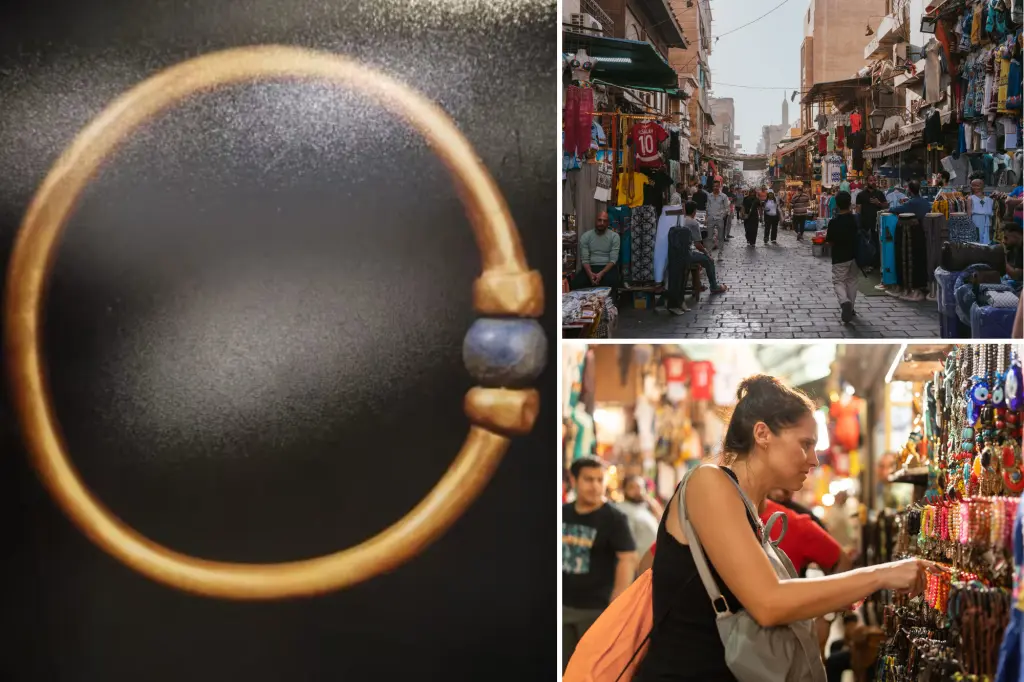Navigating Safety in Egypt: A Tourist’s Guide Following the Loss of a Pharaoh’s Treasure
The global archaeological community was recently shaken when a priceless 3,000-year-old bracelet belonging to Pharaoh Usermaatre Amenemope was stolen from Cairo’s Egyptian Museum and tragically melted down for mere profit. The theft, perpetrated by a museum restoration specialist who sold the irreplaceable artifact for approximately $4,000, has cast a spotlight on security concerns in Egypt. Despite authorities arresting everyone involved—including the jewelers and foundry workers who handled the ancient treasure—the damage was irreversible, with a piece of world heritage forever lost. While this specific incident wasn’t directly aimed at tourists, it has understandably raised questions about safety for travelers considering a visit to the land of the pharaohs. The incident serves as a sobering reminder that Egypt’s remarkable historical treasures exist within a complex socioeconomic reality that shapes visitor experiences.
Understanding Egypt’s economic context provides crucial perspective on crime and safety concerns for tourists. With average monthly salaries for Egyptians hovering around 5,005 Egyptian pounds (less than $160 USD), according to official national statistics, the $4,000 gained from selling the pharaonic bracelet represents wealth far beyond what most locals might see in years. Spencer Coursen, a threat management expert and former U.S. Army Ranger, explains that this economic reality creates “an environment in which opportunistic crime thrives.” For many locals struggling with poverty, interacting with comparatively wealthy tourists isn’t viewed as criminal activity but as necessary survival. This perspective helps explain why visitors commonly encounter persistent street vendors, unofficial “guides” who demand tips after offering unsolicited assistance, and various minor scams rather than violent crime. The economic disparity manifests primarily in pickpocketing, overcharging, aggressive sales tactics, and street harassment—particularly toward women—rather than armed robbery or assault.
Egypt presents a unique security landscape where the most significant dangers aren’t necessarily those that Western travelers might anticipate. While regional instability and terrorism concerns exist, particularly in areas like the Sinai Peninsula, these threats typically target security forces or political symbols rather than tourists. Egyptian police maintain a visible presence, especially around major tourist attractions, but their effectiveness against petty crime targeting visitors can be inconsistent. Coursen notes that security forces operate within a system where “corruption, bureaucracy and low pay limit accountability,” with small bribes sometimes used to expedite processes. This doesn’t mean visitors face constant danger, but it does require adjustment for those accustomed to Western law enforcement standards. The most common security challenges for tourists are persistent distractions and minor scams rather than violent threats, making street smarts and situational awareness more valuable protection than reliance on official intervention.
Practical safety measures can significantly enhance a visitor’s experience in Egypt while minimizing risks. Security experts recommend carrying color photocopies of passports rather than originals, keeping only small denominations of cash readily accessible, and packing medication for potential food-related illnesses, as water quality differs from Western standards. Coursen emphasizes four key safety practices: stick to populated, well-lit areas, particularly after dark; avoid drawing additional attention through flashy jewelry or revealing clothing when you already stand out as a foreigner; practice saying “No, thank you” firmly to cut off potential scams before they escalate; and respect local customs regarding dress, negotiation, and social interactions to earn respect and reduce conflict. Bobby Laurie, a Washington, D.C.-based travel expert, confirms that while he “never felt unsafe while touring Egypt,” tourists should prepare for the culture shock of extremely persistent merchants outside attractions, comparing the experience to being “a celebrity hounded by paparazzi.”
The presence of security personnel around tourist groups often surprises first-time visitors to Egypt, potentially creating initial concern about safety. However, Laurie explains that these officers primarily serve to assist tourists with navigating cities and crossing roads—where painted lines are often treated as mere suggestions—rather than protecting against imminent threats. Katy Nastro of the travel company Going recommends looking out for officers wearing “Tourism and Antiquities Police” badges at major sites, who can be reached by dialing 126 if assistance is needed. This specialized police force represents Egypt’s recognition of tourism’s vital economic importance and the country’s commitment to protecting visitors, despite the challenges within its broader security framework. For many travelers, the initial adjustment to the intensity of merchant interactions and the seeming chaos of urban areas eventually gives way to appreciation for the extraordinary cultural experiences Egypt offers.
Despite legitimate safety considerations, Egypt continues to reward visitors who arrive prepared, informed, and adaptable. The country’s unparalleled historical treasures, from the Great Pyramids of Giza to the temples of Luxor and the treasures of Tutankhamun, offer experiences that can’t be replicated elsewhere in the world. What many travelers discover is that the most significant barriers to enjoying Egypt safely are often psychological—adjusting expectations, learning to navigate cultural differences with respect, and developing comfort with a different pace and style of life. While the theft and destruction of Pharaoh Amenemope’s bracelet represents a tragic loss of heritage, it also reminds us of the irreplaceable value of Egypt’s cultural legacy and the importance of responsible tourism that contributes positively to preservation efforts. With appropriate precautions and realistic expectations, visitors can explore the Gift of the Nile safely, contributing to both their own enrichment and the economic well-being of a country that has shared its extraordinary history with the world for centuries.


